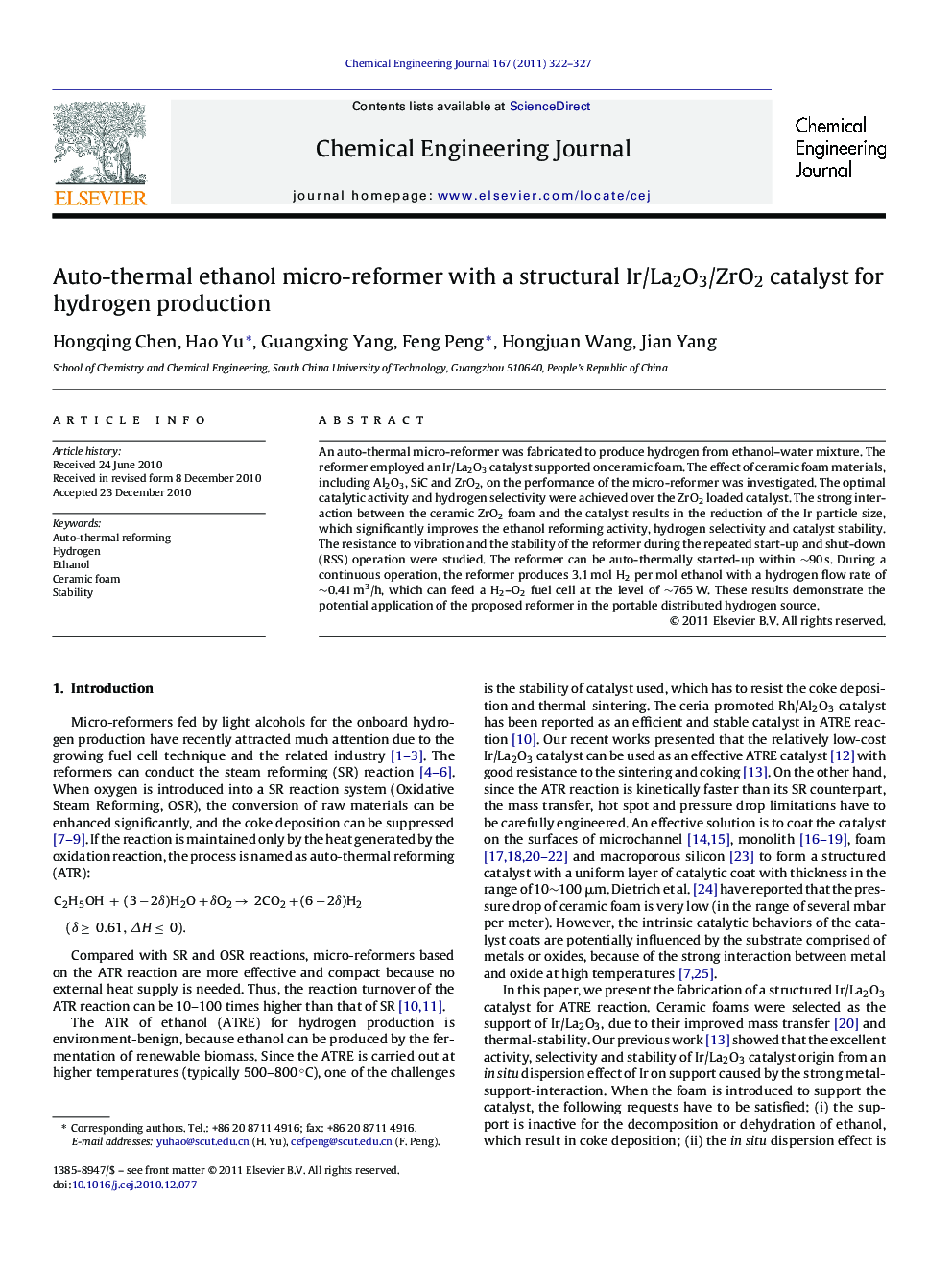| Article ID | Journal | Published Year | Pages | File Type |
|---|---|---|---|---|
| 151638 | Chemical Engineering Journal | 2011 | 6 Pages |
An auto-thermal micro-reformer was fabricated to produce hydrogen from ethanol–water mixture. The reformer employed an Ir/La2O3 catalyst supported on ceramic foam. The effect of ceramic foam materials, including Al2O3, SiC and ZrO2, on the performance of the micro-reformer was investigated. The optimal catalytic activity and hydrogen selectivity were achieved over the ZrO2 loaded catalyst. The strong interaction between the ceramic ZrO2 foam and the catalyst results in the reduction of the Ir particle size, which significantly improves the ethanol reforming activity, hydrogen selectivity and catalyst stability. The resistance to vibration and the stability of the reformer during the repeated start-up and shut-down (RSS) operation were studied. The reformer can be auto-thermally started-up within ∼90 s. During a continuous operation, the reformer produces 3.1 mol H2 per mol ethanol with a hydrogen flow rate of ∼0.41 m3/h, which can feed a H2–O2 fuel cell at the level of ∼765 W. These results demonstrate the potential application of the proposed reformer in the portable distributed hydrogen source.
